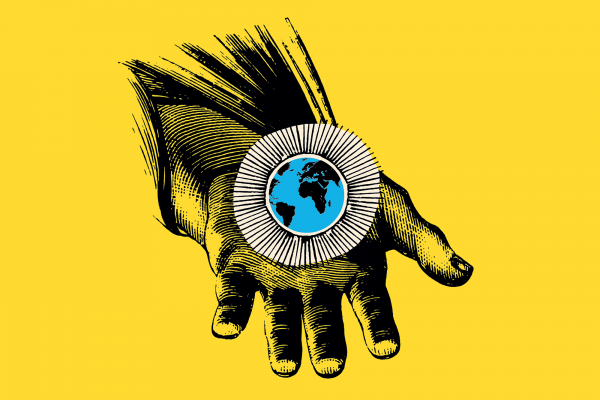THERE WAS A TIME—and I remember it well—when very few faith traditions took the environmental crisis seriously. Since I’m a Christian, I knew the reaction within my community firsthand: Liberal churches thought that ecology was something we would get to once we dealt with war and poverty; conservative churches thought anything environmental was a way station on the road to paganism.
This has changed—more decisively in mainline churches than evangelical ones, perhaps, but across the board there is now robust scholarship on the biblical roots of creation care. And this same revolution has taken place across other traditions too—in no small part thanks to Mary Evelyn Tucker and John Grim. Working at Harvard in the 1990s, they assembled a series of landmark conferences for theologians of different backgrounds. One weekend would be devoted to Jains finding the green roots of their religion; a few weeks later, Hindus or Sikhs or Confucians or Muslims would assemble. By the time this Harvard series finished, it was clear that every major faith had resources buried in their scriptures and commentaries—treasures that perhaps no one had noticed till the growing climate crisis demanded that they be found.
Read the Full Article

